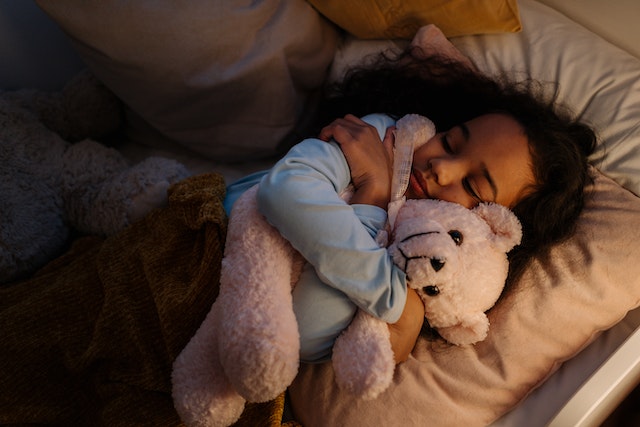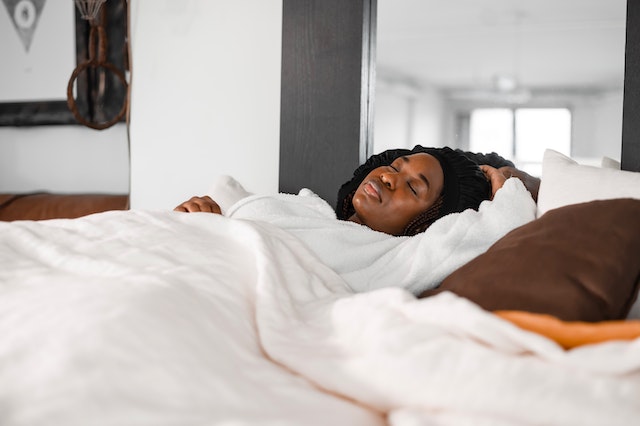As adults, when we don’t get a good night’s sleep, the next day, if it weren’t for that pot of coffee, we wouldn’t be too happy. Well, the same goes for kids, pretty much, of all ages. A good night’s sleep is important on many levels for childhood development, health, and productivity. According to Dr. Craig Canapari, pediatric pulmonologist and director of the Yale Pediatric Sleep Center, in a recent interview with TODAY.com, here are a few tips on how to help kids get a good night’s sleep so that they will wake up well-rested and ready to go!

1. Give them a regular bedtime.
According to Dr. Canapri, a regular bedtime is “a hugely impactful thing to help a child sleep better at night.” It is important to ensure that you are giving your child an age appropriate bedtime.
Per Lessa.com, here are some recommended times for children ages 0-13:
- 0-3 months old need 14 to 17 hours of recommended sleep per National Sleep Foundation (NSF). There is no official recommended bedtime.
- 4-6 months old need 12 to 16 hours of recommended sleep per the NSF. The recommended bedtime is between 7:00 p.m – 8:00 p.m.
- 7-11 months old need 12 to 16 hours of recommended sleep per the NSF. The recommended bedtime is between 6:00 p.m. – 7:30 p.m.
- 1-2 years old need 11- 14 hours of recommended sleep per the NSF. The recommended bedtime is between 6:00 p.m. -7:30 p.m.
- 3-5 years old need 10-13 hours of recommended sleep per the NSF. The recommended bedtime is between 7:15 p.m. – 8:30 p.m.
- 6-13 years old need 9-11 hours of recommended sleep per the NSF. The recommended bedtime is between 7:15 p.m-9:00 p.m.
2. Once bedtime hits, the kitchen is off limits.
Once it is time for bed, one more snack is off limits. The kitchen is closed.
“The way a lot of kids may delay bedtime is they’ll ask for food or a snack or say they’re hungry,” Dr. Canapri explained in his interview. “It’s OK to give your kid something like a glass of milk, but I wouldn’t open up the kitchen again even if they’re asking for it.”

3. Bedtime = No phones
“I always tell parents when I’m seeing children with insomnia, ‘If you don’t have custody of your child’s phone, assume it’s in the bedroom and assume that they’re using it,'” Dr. Canapari says.
Just like we are on our phones while tucked into bed, so are they. It has been proven that the light from phone screens, tablets, television sets, etc. interfere with the process of falling asleep. So, make sure that when it is time for “lights out,” that really means…”lights out!”
4. Keep the same sleep schedule on the weekend as you do during the week.
When children get older and become teens, their biological clocks shift by a few hours. Encourage them to stay on their same weekday sleep schedule and they won’t have a “social jetlag” feeling during the week.

Lastly…
5. Pay attention to snoring
“It’s not abnormal for a kid to snore once in a while, especially when they have a cold,” Dr. Canapari says. “But for children and grownups who snore nightly and snore loudly, it’s absolutely worth getting that evaluated.”
Try these tips they just might help everyone get a better night’s sleep.







